Many people care not about Satoshi Nakamoto, but rather…
Author: Mu Mu | Blockchain in Plain Language
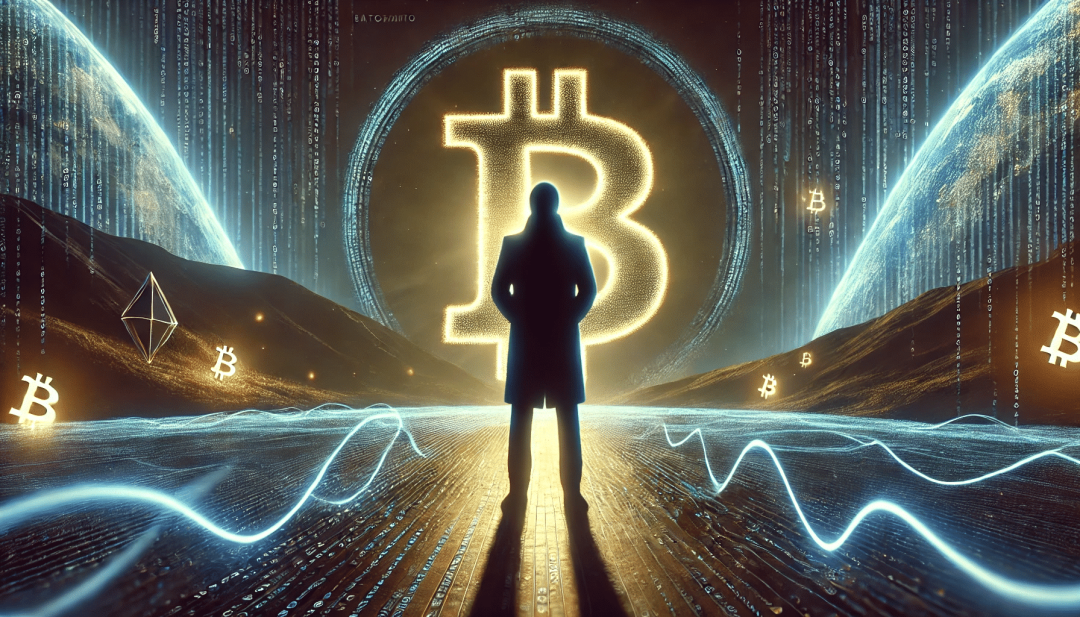
Recently, the globally renowned pay-TV network HBO announced that it will reveal the identity of Bitcoin's founder Satoshi Nakamoto through their documentary, although I believe this is yet another meaningless marketing stunt capitalizing on the "Satoshi" traffic password. Nevertheless, HBO's documentary promotion has successfully sparked a major discussion in the crypto community and the financial world, and one cannot help but admire their choice of such a special time to provoke everyone's sensitive nerves…
01
Searching for Satoshi
This year, the approval of the Bitcoin ETF** has officially made it a mainstream asset, bringing Bitcoin into a broader public view.** Global financial institutions are increasingly interested in this "alternative asset," and HBO, as an experienced television program producer, finds it not difficult to tap into the "Satoshi" traffic password that has been solid for many years.
However, I believe that claiming to find out "Satoshi's" true identity or key clues just by making a documentary is completely impossible. After all, for more than a decade of Bitcoin's rise, not only the crypto community and media but also some official judicial and security departments of certain countries have never stopped searching and investigating. As a top cryptographer, "Satoshi" has been extremely rigorous, never revealing any clues, appearing anonymously and then disappearing without a trace.
Given this, why does HBO still claim to have found "Satoshi" and solved the mystery? The root cause naturally comes from its profit model. As a well-known producer of documentaries, HBO has launched many popular documentaries, earning substantial subscription fees, advertising fees, publication licenses, and sales of audiovisual products. In short, their goal is to dig up "traffic passwords" and monetize them.
So far, the individuals related to the HBO documentary's speculation and suspicion about Satoshi, such as Peter Todd, Len Sassaman's widow, and Adam Back, have all denied this identity. The most direct suspect, Peter Todd, has vehemently refuted the arguments presented in the HBO documentary on social media, and a controversial farce is gradually coming to an end.
Peter Todd quoted Craig Wright's statement that "HBO is talking nonsense" on social networks, saying, "At this point, I think we should believe him. After all, Craig Wright is the world's most famous non-Satoshi expert."
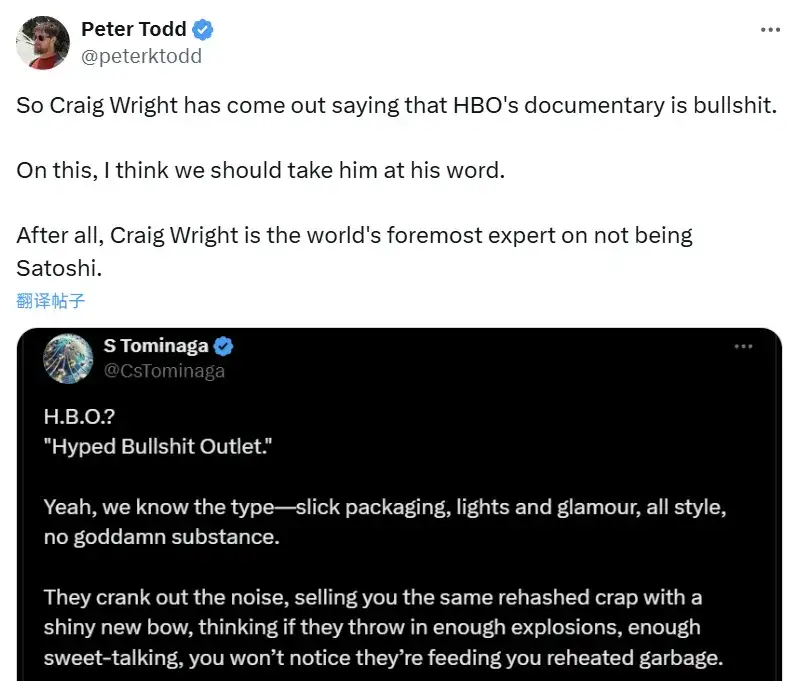
On one side is Peter Todd, who vehemently denies being Satoshi, and on the other is Craig Wright, who once claimed to be Satoshi, making the situation interesting.
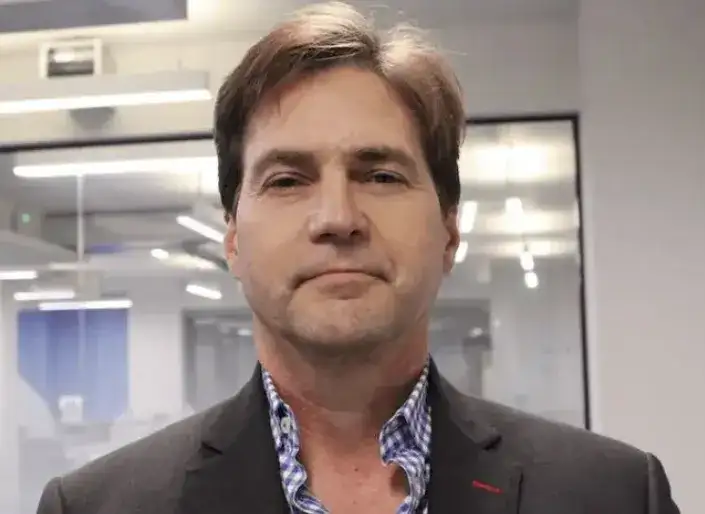
Craig Wright
So who is Craig Wright? Since 2015, the Australian Craig Wright has claimed to be Satoshi Nakamoto, later dubbed "Faketoshi" by skeptics. Subsequently, Craig Wright has provided some relatively vague "evidence" to prove himself, but unfortunately, there is no solid proof. In 2019, Craig Wright even applied to the U.S. Copyright Office to register the copyright of the Bitcoin white paper and code. He then initiated some legal lawsuits based on the obtained copyright registration certificates. To this day, the Bitcoin community remains highly skeptical, believing he is merely seeking profit and influence through continuous hype.
Craig Wright has consistently claimed to be the true creator of Bitcoin, hoping to restore Bitcoin's original design and advocating for large blocks and high throughput. There are many supporters of Craig Wright within the well-known Bitcoin forks BCH and BSV communities. Particularly, the support from the BSV community has allowed Craig Wright to have significant influence over BSV's development, and his viewpoints and resources have played a crucial role in the BSV community. Of course, his leadership roles in the BSV community are also seen as evidence of his profit-seeking hype.
Currently, with BSV in decline, Craig Wright's "Satoshi" identity has been largely dismissed. This "identity" is something some desperately want to cling to, while others see it as an inescapable nuisance…
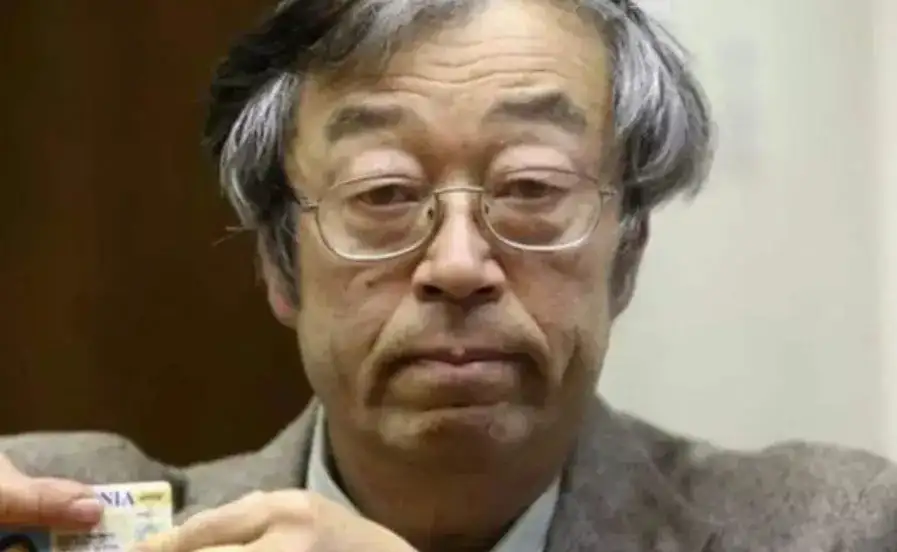
Dorian Nakamoto
In 2014, a media outlet in the U.S. claimed to have found Satoshi Nakamoto, a 64-year-old Japanese-American man named Dorian Nakamoto living in California. This image of Nakamoto has been widely associated with the public's perception of Satoshi, which is hard to shake off. Meanwhile, the "Satoshi" account, which had been inactive for three years, denied: "I am not Dorian." (Some community members suspect this message was not posted by him.)
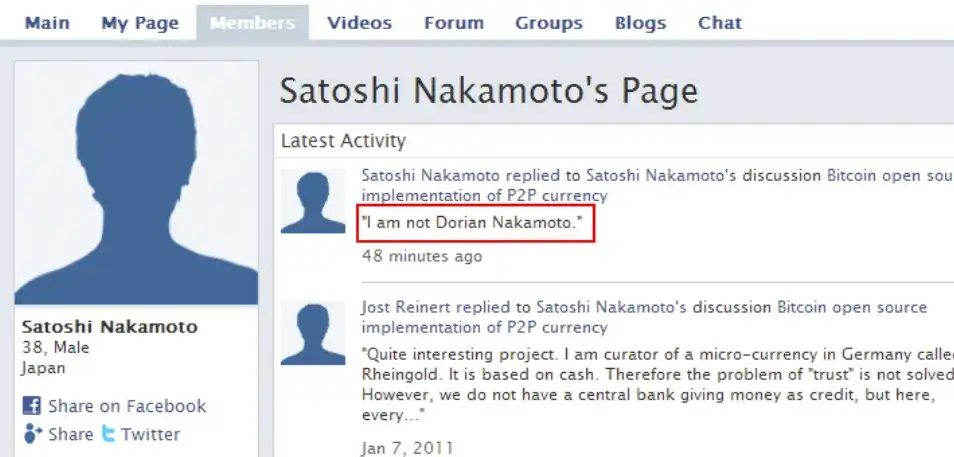
However, many truth-seekers, including some curious media, flocked to Dorian Nakamoto and his family, causing them distress. To protect their privacy, they even hired legal counsel and requested the public to stop bothering them in a statement. He ultimately pleaded, "I urge everyone to respect our privacy now and let us return to peace."
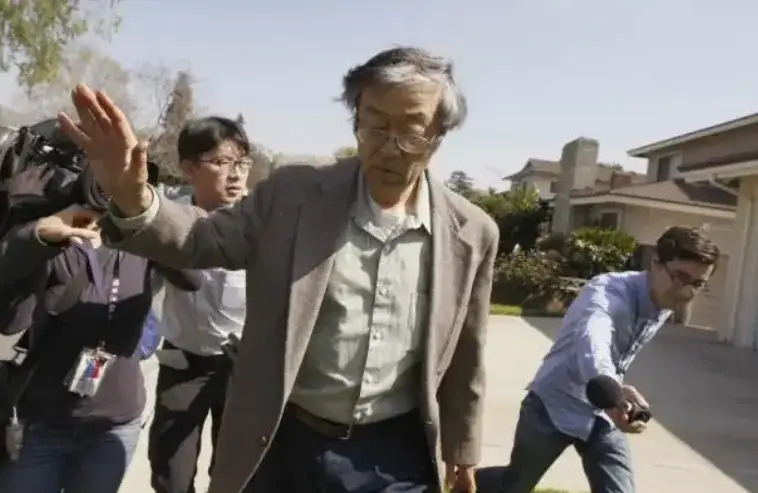
02
Many people do not care who Satoshi is,
what they truly care about is the coins in his hands.
Due to Bitcoin's total supply cap of 21 million coins, Satoshi did not disclose the whereabouts of the 1.1 million Bitcoins he retained when he withdrew, nor did he destroy them. This means that over 5% of Bitcoin could potentially be thrown onto the market at any time. This remains an "uncertainty" risk that Bitcoin holders cannot shake off.
The reason people go to great lengths to search for Satoshi and want to confirm his identity is not just simple curiosity, but more so to gain a sense of certainty. Similar to a classic line from a TV show, "You want to see the person alive or the corpse dead," if it cannot be confirmed, the risk will always exist. This concern extends beyond investors; regulatory bodies also worry about risk events causing market instability from the perspective of protecting investors.
As of the end of September, the holdings of Bitcoin spot ETFs in the U.S. exceeded 900,000 coins, just a step away from the 1.1 million coins held by Satoshi. Some analysts point out that by 2025, the holdings of Bitcoin spot ETFs may officially surpass Satoshi's holdings, meaning that through the U.S. Bitcoin spot ETF alone, traditional finance will have injected over $60 billion into Bitcoin, and the trillion-dollar market cap of Bitcoin will further rise, attracting more funds.
Wall Street and all investors "fear uncertainty," and Satoshi has become a significant "uncertainty" factor for Bitcoin. This concern has intensified with Bitcoin's growing market cap and daily trading volume of billions of dollars, leading to HBO's successful provocation. Of course, even without HBO, there would be "ABO," "CBO," and others stepping in to stir this sensitive nerve for various interests.
Earlier analyses suggested that if Satoshi had not disappeared back then, based on Bitcoin's early trajectory, he might have faced "prison time." Even today, countless troubles can be foreseen as a result, proving that Satoshi's decision to go into hiding was indeed the right one.
To this day, the mystery of Satoshi's identity remains elusive, and the answer may never be revealed. However, perhaps the more elusive it is, the more sleepless nights many people will have.
03
Conclusion
Regardless, Bitcoin has made a tremendous contribution to human society, "We owe Satoshi a Nobel Prize in Economics." A salute to this "one who left quietly, deeply hiding his name and self," Satoshi.
Article link: https://www.hellobtc.com/kp/du/10/5465.html
Source: https://mp.weixin.qq.com/s/ewTWfrLTYuxRSuAsnh891g
免责声明:本文章仅代表作者个人观点,不代表本平台的立场和观点。本文章仅供信息分享,不构成对任何人的任何投资建议。用户与作者之间的任何争议,与本平台无关。如网页中刊载的文章或图片涉及侵权,请提供相关的权利证明和身份证明发送邮件到support@aicoin.com,本平台相关工作人员将会进行核查。




